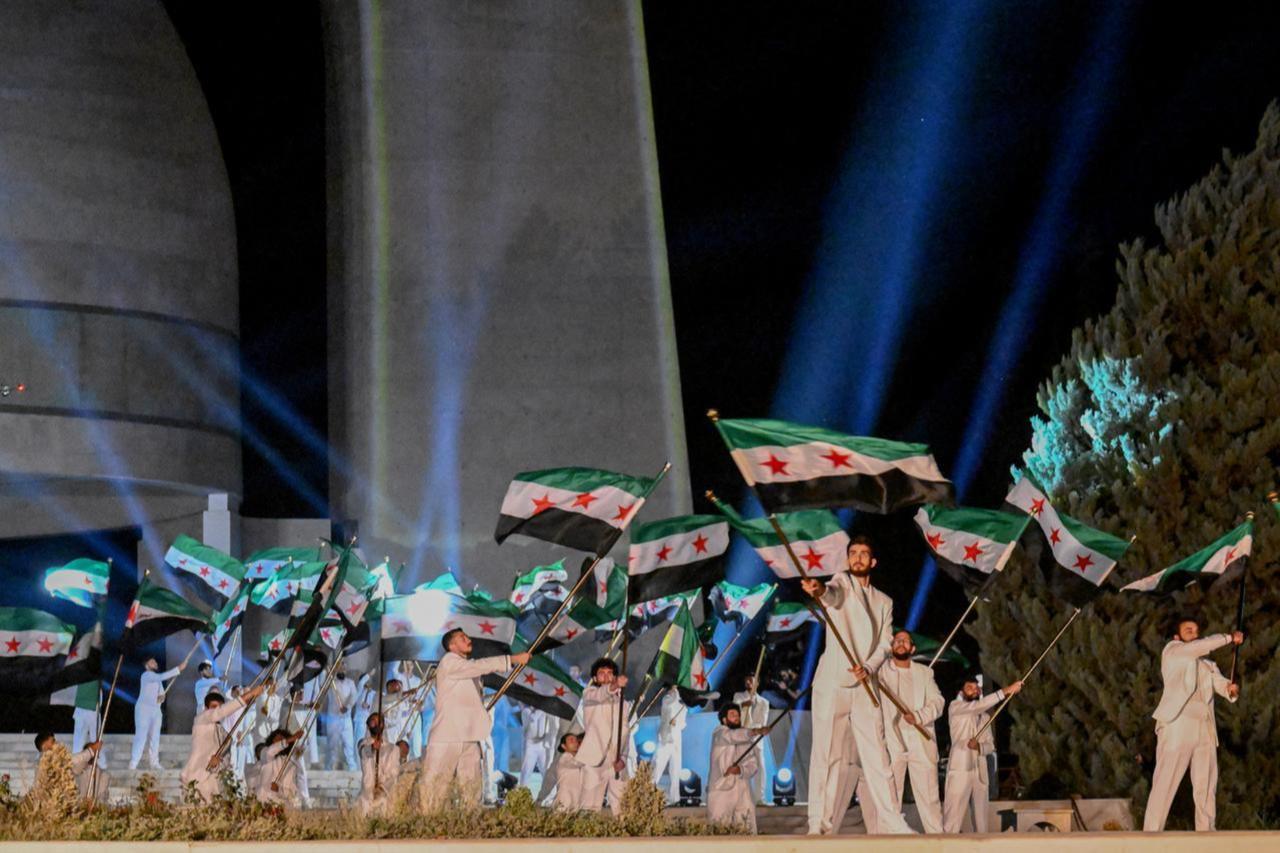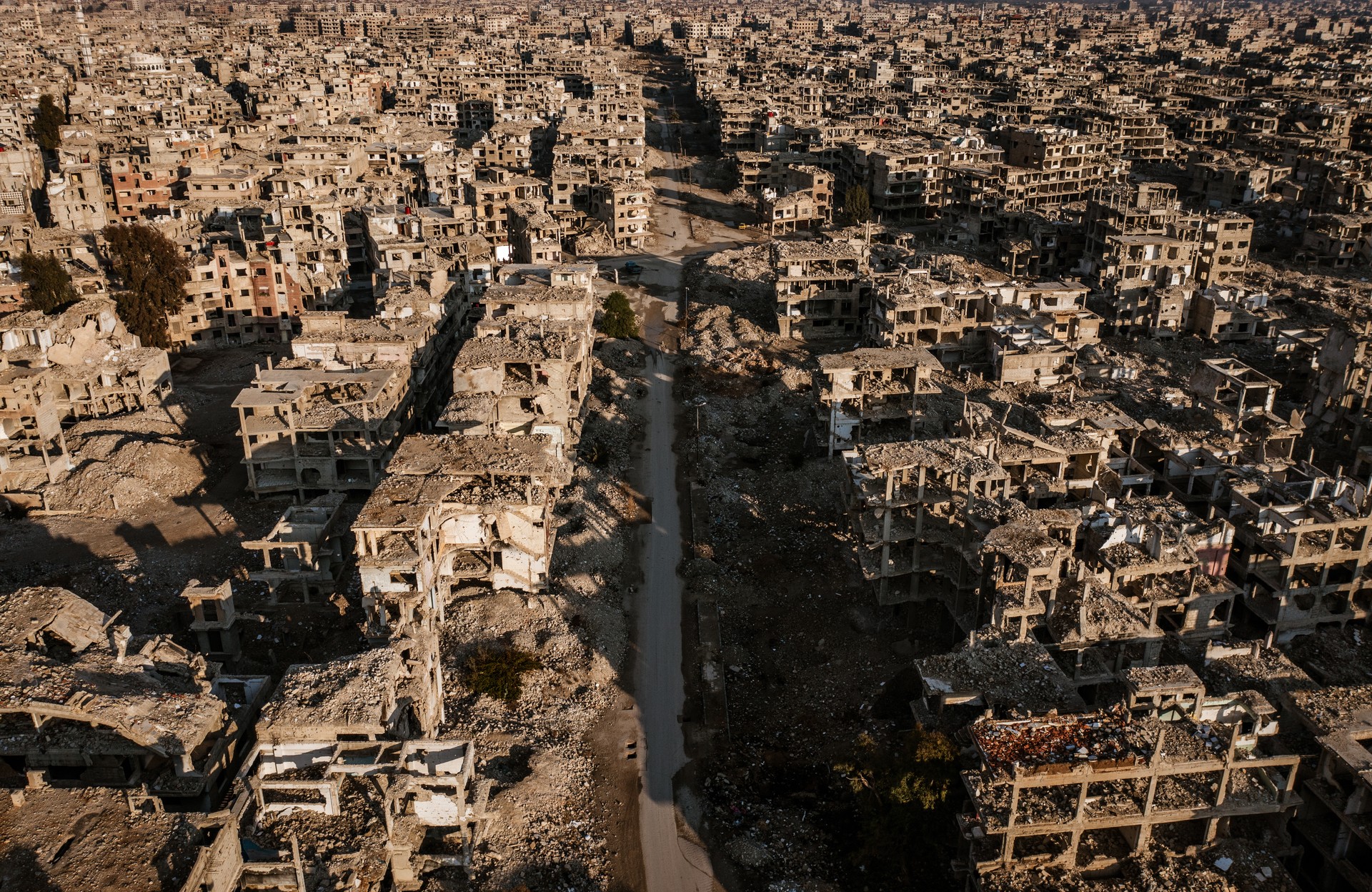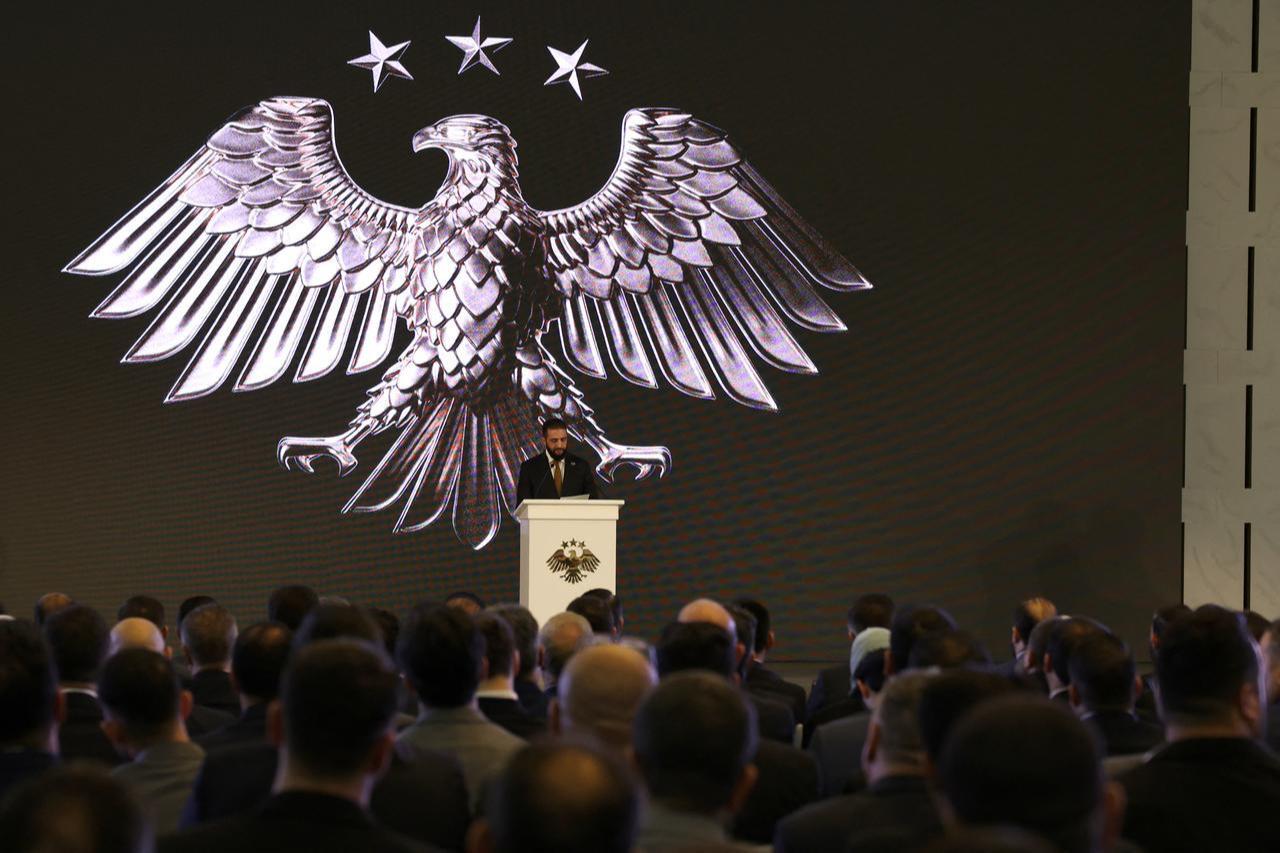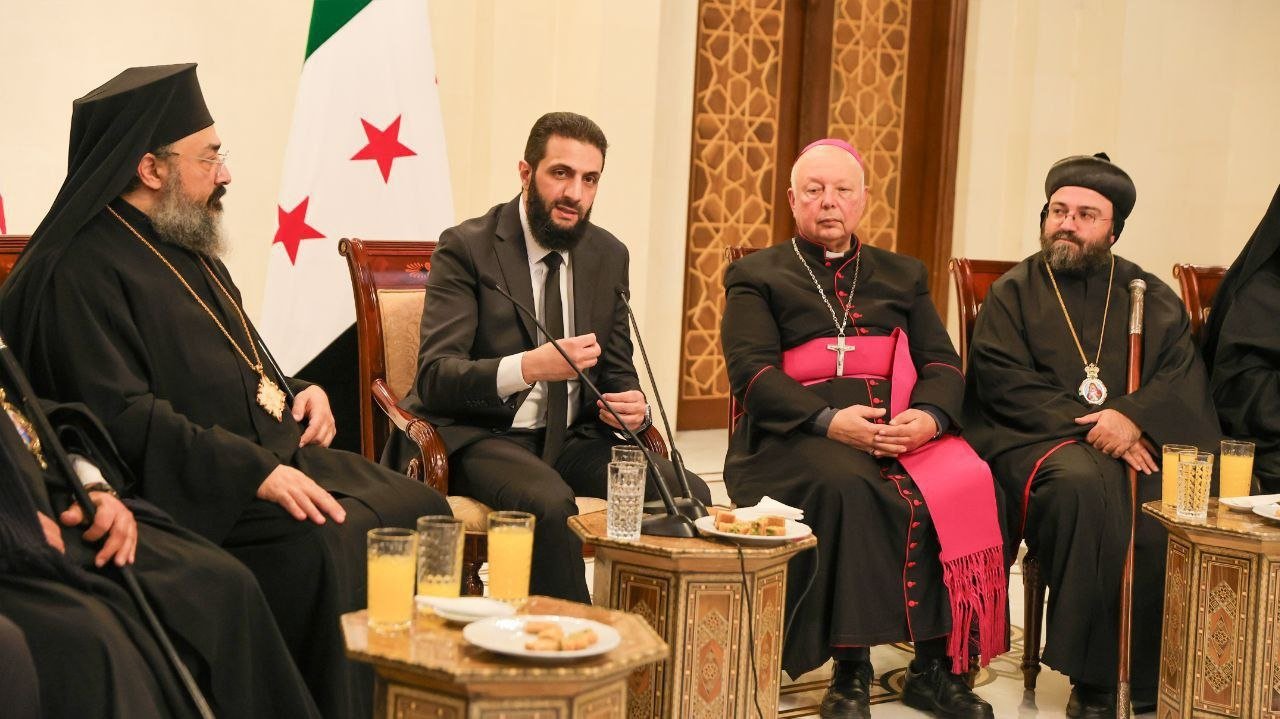
Nine months after Bashar al-Assad’s fall in December 2024, Syria is experiencing something unfamiliar: the ability to measure public opinion freely and at scale.
Now, Syrians across all governorates were able to be asked how they feel about their country, its institutions and their own futures.
The results of the Arab Opinion Index in Syria, based on nearly 3,700 face-to-face interviews, show a society cautiously hopeful yet deeply constrained.
The sense of change is palpable. More than half of the respondents believe Syria is moving in the right direction.
The drivers of optimism are clear: the release of detainees, the lifting of some sanctions, and an overall security improvement.
Yet these findings coexist with economic deprivation, sectarian undercurrents and deep suspicion of corruption.
While they now voice stronger support for democracy and pluralism than ever before, they also live with unresolved fears about insecurity, displacement and regional threats.
The survey results underscore how regime change transformed political mood almost overnight. More than half of the society reported feelings of hope, safety, and relief since Assad’s departure.
But still, roughly one-third say they “sometimes” feel tension, fear, uncertainty, hopelessness, sorrow, or anger—but very few report experiencing these emotions “always” or “most of the time.”
In other words, distress remains present, but it does not define everyday life to the same extent that positive emotions now do.
Syrians are also rethinking how they assess public life. Political and security conditions were rated positively by more than half, a striking reversal from the despair that dominated surveys conducted outside the country during the civil war years.
Yet the euphoria doesn’t mask unresolved trauma, and the economy remains the spoiler.
The majority describe economic conditions as “bad” or “very bad,” a sign that structural devastation and sanctions weigh more heavily than political reform in shaping daily survival.

Beyond political relief, Syrians face the enduring reality of deprivation. Almost half of families say their income fails to meet basic needs.
Only one in 10 enjoys any financial comfort, while 40% manage to make it to the end of the month at least with the basic needs covered.
Nutrition itself has become precarious. Families stretch their budgets through remittances and informal assistance; 61% of households eat meat less than once a week.
Such conditions are not new. Years of war, sanctions, and the collapse of industry left Syria’s economy hollowed out.
What is new is that hardship is now openly acknowledged and measured inside the country.
The sociological consequence is clear: while Assad’s fall lifted political repression, material insecurity continues to erode confidence in the future.
More than a quarter of Syrians would emigrate if given the chance, signalling an important message for the major powers that hold the balance of power in the country, yet do not want migration mobility.

One of the survey’s more surprising findings is the tentative recovery of trust in state institutions.
Just over half expressed confidence in the government, the defense ministry, and local administrations. This is notable given that under Assad, state institutions were widely perceived as tools of regime survival rather than providers of public goods.
Still, Syrians remain divided over the rule of law. While nearly half say the law is applied equally, many argue that enforcement privileges certain groups. The tension points out the unfinished work of state-building, demanding the promise of the new administration, that is, institutions that serve society rather than factions.
Public evaluations of government performance further reveal the gap between expectations and delivery.
credit authorities with protecting property and reducing crime, but fault them for failing to control prices, tackle unemployment, or roll back sectarian rhetoric among the society.
Corruption looms large: nearly nine in 10 describe it as widespread, although over half believe its scale has diminished since Assad’s departure.
That is, while authoritarian collapse created openings, systemic patterns of patronage and graft remain embedded in governance structures in the post-conflict society.
Calls for accountability are equally revealing. Two-thirds of Syrians want transitional justice to apply to all actors that took part in war crimes, whether former regime loyalists or opposition factions alike. For Syrians, it’s not only a demand for fairness but also an emerging civic norm to not repeat the pain of the past.

Perhaps the most significant sociological finding is the broad embrace of democracy as the preferred model. Around 60% agree that democracy, despite its flaws, is better than any alternative, and 61% say it is the best system for Syria today.
These are striking numbers in a country where multiparty politics has been absent for decades.
Equally telling is the willingness to accept electoral outcomes. More than half of the respondents said they would accept a party they disliked if it won free elections.
This points to a nascent political culture that prizes process over factional dominance.
Respondents also supported a diverse party system, including nationalist, extremist, Arab nationalist and liberal currents.
In a region often polarized between secular and Daesh camps, Syrians appear more pragmatic, recognizing the need for pluralism rather than exclusion.
Also, as a sign of a democracy, the percentage of participants who said that the new administration's foreign policy moves reflect their own views exceeded 60%.
The survey paints a complex picture of Syrian identity. Nearly two-thirds believe some form of national integration has occurred, with culture and language cited as key anchors.
But sectarianism remains an open wound. Eighty-five percent say sectarian rhetoric is widespread, and 83% report discrimination based on sect or religion.
Many attribute such tensions to foreign interference or weak civic norms, reminding us how Syria’s conflict has deepened identity-based cleavages.
Yet everyday practices suggest greater tolerance. Two-thirds say they see no difference in dealing with people of other sects or religions, and majorities welcome neighbors from diverse backgrounds.
This gap between rhetoric and practice is common in divided societies: while political figures and centers of power exploit sectarian frames, ordinary people seek coexistence in daily life.

The poll shows how regional politics shape Syrian perceptions of security. Israel dominates threat assessments: 78% identify it as the greatest danger to the Arab world, and 55% say it is Syria’s top threat, far above Iran at 14%.
From the occupation of the Golan Heights to Israeli strikes in Syrian territory, the framing of perception reflects not an official discourse but ongoing realities.
The Palestinian cause also remains central for people of Syria. Nearly 70% of Syrians say it concerns all Arabs, not Palestinians alone.
Opposition to recognizing Israel stands at 74%, though Syria records the highest minority support for recognition across Arab states at 17 percent.
The condition is clear: normalization without the return of the Golan is unacceptable.
Three-quarters of Syrians also report following the Gaza war closely. Many blame its continuation on U.S. backing for Israel and the Arab governments’ failure to support Gaza, reinforcing the perception of Syria as both victim and witness to broader regional dynamics.

Religion remains important to Syrians, but its role is evolving. Only 10 percent describe themselves as “very religious,” while the majority emphasize moral character over ritual practice. Most reject the idea that non-religious people are inherently bad.
When it comes to politics, 57% favor the separation of religion from the state.
This is a significant finding in a country where both secular authoritarianism and Islamist mobilization have shaped recent history.
Socially, Syrians report inclusive attitudes: most do not differentiate between religious and non-religious individuals in everyday dealings.
This suggests that while sectarian identities remain politically salient, religion as a determinant of social trust is less pronounced.
Digital platforms have become the main space for political engagement. Nearly 80% of Syrians use the internet, and virtually all are active on social media. Seventy percent say they (can) express opinions online, and two-thirds engage in debates about politics.
This digital sphere plays a dual role. On one hand, it enables Syrians to voice criticism of the government, something unthinkable under Assad.
On the other hand, it has become a vector for sectarian rhetoric and misinformation, with four in five users acknowledging these risks.
The digital media, in transitional societies, in that sense, both democratize expression and reproduce old conflicts in new forms.
For now, as the Arab Opinion Index findings capture, Syrians live in a dualistic paradox: hopeful about their political future, yet burdened by economic reality; committed to pluralism, yet aware of sectarian fractures; eager for accountability, yet skeptical of institutions.
The survey captures that tension.
The fall of Assad has opened space for possibility, but possibility alone will not be enough to secure Syria’s fragile transition.